“People would call me and they would say, ‘Do you want to write this TV show about a Black teenager murdered by the police? Do you want to write about this movie about a slave? Do you want to write this movie about crack dealers?’ ” Jefferson says. “It just felt like, there’s still just such a hugely limited perspective as to what Black life looks like.”
“It felt like it was a book written specifically for me,” he says. “About 50 pages in, I knew that I wanted to try to adapt the script. … About 100 pages, and I knew I wanted to adapt it and direct it.”
The film, which has been nominated for a Golden Globe for best comedy, follows along as Monk writes the kind of “Black” book the publishers want, using every tired and offensive trope he can think of. He submits the manuscript under a pseudonym, and, to his surprise, is offered a $1 million book deal.
Jefferson says that using satire to tackle racism was both fun and cathartic: “You’re talking about these serious issues, but you’re talking about them in a way that makes you laugh … [and] makes other people laugh,” he says. “I think that there’s a power in that that other kinds of art don’t have.”
I started out as a journalist for about 8 or 9 years, and then I started working in film and television in 2014. … When I was a journalist, … toward the end of my career, it had started to feel like there was this revolving door of misery that I was expected to write about. And so sort of on a weekly basis, they would come to me and say, “Do you want to write about Mike Brown getting killed?” “Do you want to write about Trayvon Martin getting killed?” “Do you want to write about this unarmed Black person getting killed?” It just felt like there was this constant churn of just violence and misery.
I think that my ignorance about the industry sort of helped me in guiding the career that I have. When I first started working in … television, for instance, I didn’t know that people who write for television generally choose one: either drama or comedy. That is the path. And so when I got into it, I just thought that, well, I want to do both. I feel both happy and sad in my life. … Life is neither comedy nor tragedy. And so I just wanted to work on things that felt like life. …
And then when I started working in it more … a friend of mine suggested that that I try directing out. … I hadn’t gone to film school. So I know nothing about cameras or lenses or lighting. [But my friend said] you don’t need to have gone to film school. You just need a vision, and to be able to articulate that vision to the people that you hire to work on the film with you. And so that kind of planted the seed. And so I started considering that and [it] took me about four years until I found the book that I ultimately knew I wanted to direct.
I saw that movie when I was about 9 or 10 years old, probably, and it just changed my life. … I certainly didn’t know the word “satire” back then. I didn’t know what that meant, but I knew how it made me feel. And 9, 10 is [when] you’re right in the thick of learning about slavery and civil rights and sort of the origins of this country and the ways in which people teach you these things is basically by showing you horror movies. …
Transcript :
TONYA MOSLEY, HOST:
This is FRESH AIR. I’m Tonya Mosley. In the new satirical film “American Fiction,” Thelonious Ellison is a frustrated writer who can’t get his latest book published because editors say it’s not Black enough. So he decides to write the kind of Black book they want out of spite, using every tired and offensive trope he can think of. He submits the manuscript under a pseudonym. And to his surprise, he’s offered a million-dollar book deal. This film is TV writer Cord Jefferson’s directorial debut. He got his start as a journalist before becoming a screenwriter for shows like “Succession,” “The Good Place,” “Master Of None” and Larry Wilmore’s former late-night TV series “The Nightly Show.” In 2020, he won an Emmy for his writing of Episode 6 of “Watchmen,” titled “The Extraordinary Being,” along with Damon Lindelof. “American Fiction” features a star-studded cast that includes actors Jeffrey Wright, Issa Rae, Adam Brody and Sterling K. Brown. Cord Jefferson, welcome back to FRESH AIR.
CORD JEFFERSON: Thank you so much for having me.
MOSLEY: OK, so the main character in “American Fiction,” Thelonious, whose nickname is Monk, played by Jeffrey Wright, is a writer and college professor who writes this book out of spite. And the book’s contents play into all of the stereotypes about violence and trauma with these over-the-top characters. But, of course, Monk writes it under a fake name. So to add to the lies, he says he can’t reveal his true identity because he’s running from the law.
JEFFERSON: Yeah.
MOSLEY: I want to play a scene. It is Monk and his editor, played by John Ortiz, and they’re talking with Paula from one of the publishing houses over speakerphone. Let’s listen.
(SOUNDBITE OF FILM, “AMERICAN FICTION”)
MIRIAM SHOR: (As Paula) Hello?
JOHN ORTIZ: (As Arthur) Hello, Paula.
SHOR: (As Paula) Arthur, so wonderful to hear from you. I hope that you are with the man of the hour.
OTIZ: (As Arthur) I am indeed. He’s right here next to me.
SHOR: (As Paula) Mr. Leigh?
JEFFREY WRIGHT: (As Thelonious “Monk” Ellison) This is he.
SHOR: (As Paula) Really?
WRIGHT: (As Thelonious “Monk” Ellison) Yeah, damn it, motherf*****.
SHOR: (As Paula) Right. OK. Yeah, I was a little confused at first, but…
OTIZ: (As Arthur) We’re both very excited to discuss Thompson Watt’s offer.
SHOR: (As Paula) Yes. Well, first of all, let me just say that all of us here at Thompson Watt are thrilled with “My Pafology.” It is about as perfect a book as I have seen in a long, long while – just raw and real. And, Mr. Leigh, is this based on your actual life?
WRIGHT: (As Thelonious “Monk” Ellison) Yeah. You think some b****-a** college boy can come up with that sh**?
SHOR: (As Paula) No, no. No I don’t.
MOSLEY: That was a scene from the new movie “American Fiction.” And, Cord, this film is based on Percival Everett’s 2001 book “Erasure.” When did it become clear to you that you wanted to adapt it?
JEFFERSON: Oh, wow. Almost instantly. I found “Erasure” – I’d had a really bad 2020. We’ve all had a bad 2020. I don’t think that I’m saying anything unique there. But mine was bad not just because of COVID, but also because I had come very, very close to getting a television show on the air. And at the last minute, they killed it. And that was about September of 2020. And so I was feeling pretty bereft and kind of creatively adrift. And I’m a pretty slow reader normally, but this was a book that I just devoured, you know? When I – it was one of those ones when I sat it down and went somewhere else, I would sort of – my mind would drift toward it, and I would come back and read more of it. It was – it felt like it was a book written specifically for me. Like, the themes within it were things that felt like, you know…
MOSLEY: Parallels to your own life.
JEFFERSON: Yeah. Well, in so many odd, eerie ways. And so about 50 pages in, I knew that I wanted to try to adapt the script. I would say about a hundred pages in, I knew I wanted to adapt it and direct it. And then at some point, I started reading the novel in Jeffrey Wright’s voice. That’s how early I started thinking of Jeffrey as being this – the lead character for this. He just came to me. And as soon as I was done, I called my manager and asked him to contact Percival so that I might beg him for the rights to the book.
MOSLEY: The depth of the family’s storyline is so refreshing. It’s a refreshing surprise because the movie promos and trailers don’t actually promote this part of the story. But his mother is suffering from the early stages of dementia, and he’s being asked to take a leave of absence from his job as a professor because of his anger, which means he’s leaving without a salary. It feels so relatable and universal and, as you mentioned, a lot of parallels to your own life.
JEFFERSON: Yeah, yeah. No, you know, like Monk, I had had these issues come up in my different professions. I started out as a journalist for about eight or nine years, and then I started working in film and television in 2014. And I had had these experiences in both of those arenas in which people had – you know, when I was a journalist, people were like – you know, toward the end of my career, it had started to feel like there was this revolving door of misery that I was expected to write about. And so sort of on a weekly basis, they would come to me and say, do you want to write about Mike Brown getting killed? Do you want to write about Trayvon Martin getting killed? Do you want to write about, you know, this unarmed Black person getting killed? It just felt like there was this constant churn of just violence and misery. And so it’s like, I don’t want to do this anymore.
And so when I got into film and television, it was thrilling because it felt like, great, we’re in the world of fiction. We are not bound by the realities of anything. We are allowed to write about Black people in space. We’re allowed to write about Black people riding unicorns in the underworld. It doesn’t matter. Like, we can do anything. And then, lo and behold, you know, people would call me, and they would say, do you want to write this TV show about a Black teenager murdered by the police? Do you want to write about this movie about a slave? Do you want to write this movie about crack dealers? And it just felt like, oh, even here…
MOSLEY: Even here you’re still dealing with it. Yeah.
JEFFERSON: …Even in the world of fantasy, there’s still just such a hugely limited perspective as to what Black life looks like. And then on top of that, as you said, you know, there’s a lot of these family issues that take place in the novel that – you know, there’s a trio of siblings, and I have two older brothers. And, you know, we’ve had our sort of, like, various ups and downs in our relationship. You know, there’s an ailing mother, as you mentioned. You know, my mother didn’t die of dementia, but my mother died of cancer about eight years ago. And, you know, I moved home at a certain point to help take care of her, as Monk does.
MOSLEY: Yup.
JEFFERSON: And so, you know, there’s an overbearing father figure in this story that sort of reminded me a little bit of my father and – who looms large in my life and my brothers’ lives. There was just so much overlap. It just started to feel strange, as I said, as if somebody wrote me a book specifically.
MOSLEY: You know, this cast is a pretty amazing cast. Another person that does such a great job in this film is Issa Rae. She’s hilarious and really laser sharp in this film. She plays the character Sintara Golden, whose work is basically what sets Monk off because her debut is “We Lives In Da Ghetto,” and it’s exactly the kind of work he’s railing against. In this clip, she’s at a literary festival, speaking before a packed house, and reads a passage from her book.
(SOUNDBITE OF FILM, “AMERICAN FICTION”)
ISSA RAE: (As Sintara Golden) Where are our stories? You know, where’s our representation? And it was from that lack that my book was born.
(APPLAUSE)
UNIDENTIFIED ACTOR #1: (As character) Would you give us the pleasure of reading an excerpt?
RAE: (As Sintara Golden) Yo, Sharonda (ph). Girl, you be pregnant again? Might be, I tells her. And if I is, Ray-Ray (ph) is going be a real father this time around.
MOSLEY: Cord, this scene is so over-the-top and hilarious. You know, Monk is just in misery watching all of this unfold. What was it like to write that scene? Was it kind of fun to write it?
JEFFERSON: Yeah, absolutely. You know, the whole movie was fun to write. There is catharsis in getting some of this stuff out. This is – you know, I do relate to a lot of the situations in which Monk finds himself. And it’s also just, you know, I think that satire, to me, has always had a special power, you know? I think that there – you know, I’m forgetting. I heard a quote recently that – I forget who said it. But it was, if you’re going to tell people the truth, then you need to be funny or else they’ll kill you. And I think that that is sort of what satire is able to do – is it’s really able to, you know – it’s a big tent thing. It sort of allows people to come in who might not otherwise want to listen to what you’re trying to say.
And so I think that writing that scene and, you know, all the scenes in which there’s – you know, you’re talking about these serious issues, but you’re talking about them in a way that makes you laugh and in a way that sort of makes other people laugh. I think that there’s a power in that that, you know, other kinds of art don’t have.
MOSLEY: That’s so interesting about satire because I agree with that quote. But it also just feels like for the last few years, world events and life in general have felt so ridiculous and fantastical that sometimes, at least for me, it’s been hard to consume satire because everything feels like it’s just completely over the top and we’re laughing to keep from crying.
JEFFERSON: Yeah, but I think that even if we’re laughing to keep from crying, I think that that’s still a worthy goal, you know? I think that that is – if nothing else, if we lose our ability to laugh and find joy, that’s when, like, really all is lost, you know?
MOSLEY: Yeah.
JEFFERSON: Like, even in the worst of circumstances, if we can’t find ways to enjoy each other’s company and to make each other laugh and to tell stories and to fall in love – like, all of these things that make life worth living – if we can’t find ways to do that stuff, then we’re really in trouble.
MOSLEY: You know, I heard you say that the spiritual predecessor to “American Fiction” is “Hollywood Shuffle”…
JEFFERSON: Yes.
MOSLEY: …Which is a satirical comedy that came out in ’87. It was directed and co-written by Robert Townsend and Keenen Ivory Wayans, and I’m going to play a clip from it. But Robert Townsend plays Bobby Taylor. He’s a Black actor trying to make it in Hollywood, and it’s loosely based on Townsend’s experiences in the industry. So this scene I’m about to play, the character Bobby has nabbed this role in a movie called “Jive Time Jimmy’s Revenge”…
(LAUGHTER)
MOSLEY: And he’s about to get in a fight with some street gangs. It’s so full of stereotypes, Cord.
JEFFERSON: (Laughter) It’s amazing.
MOSLEY: Yes. So on the set, Bobby is wearing a big afro wig and wearing a shiny suit and is reciting this cartoonish jive talk. Let’s listen.
(SOUNDBITE OF FILM, “HOLLYWOOD SHUFFLE”)
ROBERT TOWNSEND: (As Bobby) You killed my brother, my main man. I loved this dude, baby. He was…
EUGENE ROBERT GLAZER: (As director) Cut. Cut.
LISA MENDE: (As casting director) Why is he stopping?
GLAZER: (As director) Bobby, that was terrific. That was terrific. Why’d you stop? What happened?
TOWNSEND: (As Bobby) There’s no problem. I just forgot my line.
GLAZER: (As director) OK, that’s fine – no problem. You want to look at the script?
TOWNSEND: (As Bobby) No, I’m OK.
GLAZER: (As director) Great. OK. Let’s go again.
MENDE: (As casting director) Excuse me, Sidney (ph). Before you do, I have another very good idea.
GLAZER: (As director) Yeah?
MENDE: (As casting director) Could you tell him to be a little more, you know…
GLAZER: (As director) Yeah. Bobby. Bobby, I need a little more Black. You know what I’m saying? Like, stick your a** out. Bug the eyes. You know how they move, you know?
TOWNSEND: (As Bobby) Jive a**, jive a**, jive a**.
GLAZER: (As director) Let’s slate it. Let’s go again.
TOWNSEND: (As Bobby) OK. Sorry, Sidney.
UNIDENTIFIED ACTOR #2: (As character) “Jive Time Jimmy’s Revenge,” Scene 10, Take 1.
GLAZER: (As director) And action.
MOSLEY: That’s a scene from the 1987 film “Hollywood Shuffle,” directed by Robert Townsend. Cord, when did you first see this film? What kind of impression did it have on you?
JEFFERSON: Oh, my God, the biggest. I saw that movie when I was about 9 or 10 years old, probably.
MOSLEY: Yeah.
JEFFERSON: And it just changed my life. That – I’m – sorry, I’m trying to compose myself. I love that – that scene is probably the funniest scene in the movie.
MOSLEY: It is, it is.
JEFFERSON: Yeah, I was dying laughing. And the reason it had this profound effect on me, I didn’t – I certainly didn’t know the word satire back then. I didn’t know what that meant, but I knew how it made me feel. And, you know, 9, 10 is – you’re right in the thick of learning about, you know, slavery and civil rights and sort of the origins of this country. And the ways in which people teach you these things is basically by showing you horror movies, you know? I remember watching, like, “Eyes On The Prize,” this documentary. I remember watching “Mississippi Burning.”
MOSLEY: Yep.
JEFFERSON: Gene Hackman and Willem Dafoe. It’s really great. It’s about the Mississippi murder of the three civil rights activists who were going around…
MOSLEY: I remember now. Yes, yeah.
JEFFERSON: Yeah, yeah. It’s a great movie but it gave me nightmares. I remember specifically, like, waking up in the middle of the night worrying that the Klan was going to sort of, like, come to my house and harm my family. Like, that is how we were teaching these lessons to children. And I really like those movies. I think that they’re important. But when I found “Hollywood Shuffle,” I was like, wait a minute, this is talking about racism the way that those other things are talking about racism, but it’s doing it in a way that is making me laugh every three seconds, like, in a way that’s hilarious and accessible and not scary and just sort of – and joyful in some ways, you know?
MOSLEY: If you’re just joining us, I’m talking with Cord Jefferson about his new film, “American Fiction.” Jefferson is an award-winning screenwriter. He won an Emmy in 2020 for Outstanding Writing for a Limited Series for “Watchmen,” along with Damon Lindelof. He’s also written for “Succession,” “The Good Place,” “Master Of None,” and Larry Wilmore’s former late night series “The Nightly Show.” We’ll continue our conversation after a short break. This is FRESH AIR.
(SOUNDBITE OF ICE T SONG, “O.G. ORIGINAL GANGSTER”)
MOSLEY: This is FRESH AIR. And if you’re just joining us, I’m talking with Cord Jefferson about his new satirical movie, “American Fiction.” It’s about a novelist named Thelonious Ellison – his friends call him Monk – who’s frustrated that he can’t get his latest novel published because it’s not considered Black enough by the publishing industry.
Monk has a Ph.D. Both of his siblings are medical doctors. Their parents – they have this beach house. You interweave their lives seamlessly, and it feels real and accurate. But how did you navigate – or was it a challenge at all navigating or incorporating these characters without – like, without falling into that kind of respectable depiction of Blackness?
JEFFERSON: Yeah. I mean, that’s something that – the minute Jeffrey sat down to first discuss the script with me, when we first had our first meeting, his immediate question was – he said, you’re not trying to do some talented tenth, Bill Cosby, pull up your pants and behave in front of white people thing; are you? And I knew instantly when he asked that that he was the perfect person for the role because that’s – that had been something that I’d been thinking about as I was making it. And it’s something that I didn’t want to do.
You know, I think that – there’s this scene that – again, I don’t want to spoil it. But there’s this scene where Monk and Sintara meet toward the end of the film, and they kind of have their ideological conversation about where they come from in their art practice and their approach to making stuff that I felt was really important to make sure that we didn’t come at this from a sort of, like, respectability politics, pull up your pants kind of thing. That – you know, this is a person who’s, you know – again, I don’t want to spoil it.
But that scene was important to me to include in order for us to avoid this kind of thing because, you know, one of the things that Jeffrey and I decided when we first set out to make this was we never wanted to police Blackness. We never wanted to police art, and we especially didn’t want to police Black art. That is sort of not conversations that we found interesting or important. The other conversations we were having were vastly more important than that. And so, yes, they have Ph.D.s. Yes, they’re doctors. Yes, they’re professors. But the greatest part about it is that, you know, Cliff’s a plastic surgeon who, meanwhile, is, you know, struggling with, you know, a cocaine habit and is – his life is falling apart. And he’s divorced, and his children dislike him. And Monk is this kind of – he’s a professor. But, you know, you see that he’s kind of pathetic and angry and resentful and miserable. And he’s kind of – you know, he feels insecure and weak. And, you know, these are people just with real problems. You know, I think that these are people who are just human beings.
MOSLEY: You know, in this movie, we watch Monk’s creative process as he writes this book of stereotypical figures. There’s a great scene where the characters actually come to life while he’s writing it, and the characters talk back to him. They disagree with him in those scenes. Is that what the creative process feels like to you – that the characters disagree with you and then you kind of talk back to them in your writing, through your writing?
JEFFERSON: Yeah, yeah, yeah. I think that the thing that – you know, I never – I don’t sort of – like, I think that you can get a little twee about it and say, like, well, the muse comes in, and – like, and I call upon them. I’m not like that. I don’t do it in that way. But I do think that you start to learn who these people are as the script goes on, you know? You start to build these characters in your head, and you start to understand them more from scene to scene. And then you start going, well, this is how Cliff would react here. You know, you need to just really start listening to yourself when you – as you build them and start trusting your own instincts as to how this character would act. That is absolutely true.
And I think that every argument that you write into a screenplay should be a draw because otherwise it’s going to be super-boring. You know, you don’t want somebody to win. Everything, in my opinion, should be – you leave there going, I don’t know who’s right or who’s wrong. The vast majority of human beings do not wake up in the morning thinking, I’m going to make somebody’s day worse, or, I’m going to do bad stuff today. The vast majority of people wake up, and they think, I’m doing what I need to do, and everything that I think I’m doing is right. And so when you come at conversations and when you come at arguments and when you come at characters from that perspective – that this person believes what they’re doing is right, and so let’s follow that logic, that if you think what you’re doing is right and this person thinks what they’re doing is right, how would you guys interact with each other?
And so those are the kinds of things that I think about when writing characters – is just think about them as, these are – this is a person who is thoughtful. And this is a person who is considered. And this is a person who is making decisions because they think the decisions that they are making are the right decisions. And then follow that logic, and it allows you to start seeing these people as being real and distinct and not just kind of, you know, surface impressions of what humanity, like, kind of looks like.
MOSLEY: Our guest today is movie director and writer Cord Jefferson. We’re talking to him about his new film, “American Fiction.” I’m Tonya Mosley, and this is FRESH AIR. We’ll be right back.
(SOUNDBITE OF THELONIOUS MONK’S “HACKENSACK”)
MOSLEY: This is FRESH AIR. I’m Tonya Mosley. And if you’re just joining us, I’m talking with writer and director Cord Jefferson. He’s written for “Succession,” “The Good Place,” “Master Of None” and Larry Wilmore’s former late-night series “The Nightly Show.” And he also wrote for Gawker’s now defunct website, where he was the site’s West Coast editor. In 2020, Jefferson won an Emmy for outstanding writing for a limited series for the show “Watchmen,” along with Damon Lindelof. Cord Jefferson’s new satirical movie, which he wrote and directed, is called “American Fiction.” It’s about a writer who can’t get his novel published because it’s not Black enough and is frustrated with editors who want cliched stories about Black life.
You take on different elements of anger in this film. Monk, the main character, he has this seething, quiet anger that is clear in his very being. But then there’s his brother, played by Sterling K. Brown, who is vocally angry. He’s a gay man who feels misunderstood. I’m just wondering, is there a therapeutic element to writing about anger and creating characters who are grappling with it?
JEFFERSON: Oh, God, yeah. Yeah. You know, I’ve had a – I think that I’ve – you know, I’ve known that I have a problem with anger for a long time. Since I’ve been in my 20s, I knew that I had an issue with anger. It took me…
MOSLEY: And what do you mean by that? Like, what kind of anger? What does that exhibit itself as?
JEFFERSON: Oh, I used to – my anger used to manifest itself as – I used to get in a lot of fights in college. I used to…
MOSLEY: Like fistfights.
JEFFERSON: Yeah, but I never punched anybody. I’ve never hit anybody. But I used to get knocked out a lot in college (laughter).
MOSLEY: Oh, my God.
JEFFERSON: I used to – I really don’t like bullies. And there was a – college was the first time that I ever really encountered bullies, that people were bullying me. And just…
MOSLEY: For what? Like, what kinds of…
JEFFERSON: I mean, that’s an interesting question. It’s like, why are you getting bullied? I don’t know. You’d have to ask them. But I think that – you know, I think that there was a racial element to it, if I’m being quite honest. I think that – I went to school in the South. I had never lived in the South before. And so I went to school in the South, and I just – I think that there was a racial element to it. You know, I got picked on a lot in college for whatever reason. It never – I had never been picked on before, but I started getting picked on a lot in college by a lot of football players. There was a – it was really sort of like high school cliche, but it was college. You know, I got knocked out a few times. It just – there was – and then, you know, I would get into arguments with friends and girlfriends and my family, and I would just distance myself from everybody and I’d isolate. It was – you know, there was just – I still feel deeply angry, but I’ve just learned to…
MOSLEY: Channel it into your work.
JEFFERSON: …I’ve learned better ways to – yeah, I’ve learned to channel it into my work. I’ve learned to channel it into other creative projects. And I do a lot of therapy. I take medication now. Like, there’s just all these things that I’ve done to improve my life. But that being said, I’m still really interested in anger as a theme and the way that it ruins people’s lives and the way that, you know, it causes people to behave. You know, these guys in this movie, Monk and Cliff, these brothers, they’re very angry for different reasons. And – but the thing that they both do so well, these actors – Jeffrey Wright and Sterling K. Brown, who portray these brothers – the thing that they do so well is that you see the anger. But what keeps you on their side and what keeps you rooting for them is that you see the pain that’s underneath that anger.
MOSLEY: When you went to pitch this screenplay, you said, if you want this script, I come along as director. And I was just wondering, is that common in the industry to write a screenplay and then take that position?
JEFFERSON: No, I don’t think so. I’m not sure. You know, I think that this is an industry in which a lot of people just decide to do one thing. And, you know, I think that my ignorance about the industry sort of helped me in guiding the career that I have, which is, you know – when I first started working in film and television, for instance, I didn’t know that people who write for television generally choose one – like, choose either drama or comedy.
MOSLEY: Right.
JEFFERSON: That’s sort of – that is a path. And so when I got into it, I just thought that, well, I want to do both, you know? I know about both. I feel both happy and sad in my life. I think that’s sort of the – you know, human beings are – you know, life is neither comedy nor tragedy. And so I just wanted to work on things that felt like life. And so that was something that I never considered as being sort of this one or the other. And then when I started working in it more, I thought, you know, I’d like to try directing one day.
Actually, a friend of mine suggested that I try directing out because he said – you know, I thought that – at first, that I hadn’t gone to film school. So I know nothing about cameras or lenses or lighting. And so this is not for me. But a friend a couple years after I started working in TV said, you know, you should give it a go, you know? You don’t need to have gone to film school. You just need a vision and to be able to articulate that vision to the people that you hire to work on the film with you. And so that kind of planted the seed. And so I started considering that, and it took me about four years until I found the book that I ultimately knew I wanted to direct.
MOSLEY: Cord, I want to talk a little bit more about your journalism career for a moment. When I was a reporter, I had a white news boss tell me that I wasn’t Black enough. I’m from Detroit, and he said he wanted me, in my work, to reflect more of Detroit Tonya. And I’ve also had bosses tell me that I’m too Black, that I focus too much on Black issues. So it really shows, like, an impossible position to be in.
JEFFERSON: Absolutely.
MOSLEY: There really is no winning. And I’m just wondering. For you, you had this successful career, even when you were a journalist at Gawker. And, like, you were able to step in and say, like, I’m going to make fun of this and also talk about the fact that I’m kind of on the racism beat. But had you ever had an experience where basically, like, the Blackness meter scale came out on your Blackness?
JEFFERSON: Yeah, yeah. I mean, these are – I grew up in a weird household – very strange – in which my father was a Black Republican. My mother was a white liberal. There was nothing sort of – like, there was no political opinion taken for granted in my household. There was constant churn of discussion and interrogation and sort of – you know, it was a household where I learned very early on that it was up to me to make up my own mind about the world because, you know, I had had – I was being raised by two people who thought about the world differently in various ways. And so there was a lot of healthy discussion in my household about our beliefs and what I believed and sort of not taking lessons from the media and sort of just learning to think for myself. And when I started sort of writing about race, I think that – yeah, that I realized that it was – that that topic in particular is one that’s especially charged and gets people really polarized very fast.
MOSLEY: Yeah.
JEFFERSON: And three months before I found the novel, “Erasure,” that I ended up writing, I got a note from an executive about this script that I had written that – they said that we want you to make the character in the script Blacker.
MOSLEY: (Laughter).
JEFFERSON: And so that note came through an emissary. And I told the emissary, I will indulge that note if the person who gave you that note will come to me and tell me what it means to be Blacker.
MOSLEY: To be Blacker. Yeah, yep.
JEFFERSON: Yeah. And guess what? That note went away because I’m sure that that person knew that if they were going to have that conversation with me that they would be probably committing a civil rights violation (laughter), and so they can’t have that phone call. But these are – you know, the realities of my life are a lot of the things that I put into the film.
MOSLEY: Let’s take a short break. If you’re just joining us, I’m talking with Cord Jefferson about his new film, “American Fiction.” It’s about a frustrated novelist who’s fed up with the establishment that profits from Black entertainment which relies on tired and offensive tropes. “American Fiction” is Jefferson’s directorial debut. We’ll continue our conversation after a short break. This is FRESH AIR.
(SOUNDBITE OF ERNESTO CERVINI QUARTET’S “THE MONKS OF OKA”)
MOSLEY: This is FRESH AIR. And today we’re talking to filmmaker Cord Jefferson about his new satirical movie, “American Fiction.” Jefferson is an award-winning screenwriter. He won an Emmy in 2020 for Outstanding Writing for a Limited Series for the show “Watchmen,” along with Damon Lindelof. He’s also written for “Succession,” “The Good Place,” “Master Of None,” and Larry Wilmore’s former late night TV series “The Nightly Show.” Jefferson also wrote for the now defunct website Gawker, where he was the site’s West Coast editor.
We talked about this a little bit, but you spent a lot of time in white spaces. You grew up as a biracial Black boy in Tucson, Ariz. You went to William & Mary College in Virginia, where there wasn’t a lot of ethnic diversity. And in your journalism career, you were often the only Black person in the room.
JEFFERSON: Yeah. I grew up – you know, Tucson, Ariz., has no diversity. In that – you know, it has diversity in that there’s a lot of Latinos, but that’s really it. You know, my school was – had a lot of white people and a lot of Latino people, and that was really what diversity meant, you know? There was a handful of Black kids. We basically all knew each other and hung out with each other. But other than that, there’s not a lot of diversity. And so I grew up, you know, feeling very comfortable around white culture, you know? I feel – if we can say white culture. I grew up sort of, like, feeling very comfortable around white people just because I had to. You know, I had to sort of learn how to do that in order to make friends and in order to feel comfortable going to school, in order to feel comfortable in social situations. Like, these are just things that I had to learn. And so I think that that reality probably has helped me along my career, to be honest.
MOSLEY: Yeah.
JEFFERSON: I think that sort of an ability to be comfortable as being the only Black person in the room, it’s something that you have to learn how to handle if you sort of want to climb the professional ladder in this country. That’s just the reality of the world. And that is something that I think I learned how to do from a very young age.
MOSLEY: I want to talk about something else – mortality, which, you know, is brought up in this movie. There’s a thought and a through line around mortality with Monk’s parents and his sister. And the last time that you were on the show, you talked about the death of your mother to cancer and donating a kidney to your ailing father and your own heart condition, which kind of made you grapple with your own mortality when that happened. But before that diagnosis, I also read that you’d tell people that you probably wouldn’t live very long.
JEFFERSON: Yeah.
MOSLEY: Now that you’re older – I mean, I guess you’d be considered getting into middle age or middle aged.
JEFFERSON: Yeah, yeah. Oh, I think I’m well into middle age. I’m 41.
MOSLEY: You’re well into middle age, yeah.
JEFFERSON: Yeah, I’m 41. I think that’s – (laughter).
MOSLEY: That’s early middle age.
JEFFERSON: OK (laughter).
MOSLEY: And we’ve also, as you mentioned earlier, been through a pandemic. How has your relationship with mortality maybe evolved or changed?
JEFFERSON: Oh, I think I’ve gotten better about accepting it, to be honest. I think that the thing that I’ve learned recently about myself is that I just – I was just desperate to be an artist. I was just desperate to make stuff. That’s really what I learned about myself. And I think that this is the first year – I’ve been telling people that I think this is the first year that I might have ever – that I feel like I might be happy.
MOSLEY: Wow. Yeah.
JEFFERSON: I think that happiness has been elusive for me my entire life. And I don’t think that I’ve ever – I think that if you’d asked me ever sort of before this if I’m happy, I think I would have absolutely said no. And I don’t even know if I’m happy right now, but I know that now I feel less turmoil just in my guts. I just feel less, you know, frantic energy in my heart. I just – I feel, like, far more at ease with myself than I’ve ever felt before, you know? I think that I am – I’m just comfortable with who I am for the first time in ever, really.
And so, I think that – and I think that the difference is, is that I’m just now making stuff, you know? And this movie is so deeply personal to me. And I think that my TV career was a successful TV career in many ways, but I definitely had this chip on my shoulder that I never really talked about, which was the fact that I was working on other people’s shows always. And I…
MOSLEY: And not your own.
JEFFERSON: Yeah. And I always had this nagging voice in the back of my head saying, can you do this on your own? What if you didn’t have these bosses here to hold your hand? What if you didn’t have these bosses who I’m pretty sure were all straight white men? What if they weren’t here to sort of – to help guide you, would you be able to do this without them? And there was always that nagging feeling that just, like, maybe I’m not good enough, maybe I’m not good enough. Maybe I couldn’t do this without them.
And so I think that just finally being able to make something and finally being able to, you know, feel like I am a professional artist and feel like I have a creative outlet and I’m able to channel these feelings that I have and channel this anger that I have and channel this pain that I have and this fear that I have into work. I think that’s really allowed me to, like, exorcise some demons that had been plaguing me for a very, very long time. And so I think that I’ve just – you know, I don’t even really think about mortality these days as much as I used to. But I think that were I to, I think I would just – I just feel far more comfortable in every aspect of my life than I ever have before.
MOSLEY: And therapy.
JEFFERSON: Oh, God, yeah – therapy but also Zoloft, the antidepressant.
MOSLEY: Therapy and Zoloft.
JEFFERSON: Yeah, I just started taking – I took my first dose of Zoloft on my 40th birthday. It was my 40th birthday gift to myself. I said, you know what?
MOSLEY: What took you so long? Were you obstinate to it at first?
JEFFERSON: I was – yeah, well, I was obstinate to the fact that I was depressed at first. My mother told me she thought I had clinical depression when I was 19 years old. And I thought, you’re crazy because, you know, I was like, I get out of bed. I go exercise. I eat healthy.
MOSLEY: Highly functional.
JEFFERSON: I go to school. Yeah, yeah.
MOSLEY: Right.
JEFFERSON: And the thing that I had a therapist tell me later was the same way that there’s functional alcoholics, there’s functional depressives. Like, that doesn’t mean you don’t have clinical depression. It just means that you’ve learned to live this way. And so I was reluctant to even – again, it goes back to not acknowledging weakness, you know? I don’t want to say that I’m scared. I don’t want to say that you hurt my feelings. I don’t want to say that I feel depression. I don’t want to admit that I’m flawed in this way and that sort of – and that this is a struggle for me, right? That’s how I used to think. And then on top of that, I was also scared that my creativity came from my pain. That’s sort of – that I would take these pills and that it would go away and that sort of my ability to write and sort of, like, channel, through, like, my darker emotions would go away.
MOSLEY: How long into being on Zoloft did that fear go away for you, that you’re like, oh, I’m still creative?
JEFFERSON: Oh, God, almost instantly. Like, it has truly changed my entire life. It has changed my entire life. I feel – finally, I finally feel like I am finally, like I said, coming into myself, and I’m 41 years old. I’m about to be 42. And so that – it had a profound effect on me. And I realized that not only did it not hamper my creativity, it enhanced it.
Like, if anything, I feel far more creative than I’ve ever been because I’ve been able to clear out all these other negative thoughts and sort of make room for just creativity and make room for thinking about all these other things. I’m no longer thinking, like, if I go to this party, will all the people at the party dislike me? Am I going to be a loser if I go there by myself? Or, like, if I go and speak in front of this large audience, am I going to say something foolish and everybody’s going to make fun of me and laugh at me? Like, all of these nerves and sort of thoughts that I had that plagued me for decades now are just – I’m making room now for just, you know, being an artist. And it feels really good.
MOSLEY: Cord Jefferson, thank you for this conversation.
JEFFERSON: No, no, it’s my honor. Thank you so much.
MOSLEY: Cord Jefferson’s new movie is “American Fiction.” It’s nominated for two Golden Globes for best musical or comedy and best actor, and opens in theaters on Friday. This is FRESH AIR.
(SOUNDBITE OF RAMSEY LEWIS TRIO’S “HERE COMES SANTA CLAUS”) Transcript provided by NPR, Copyright NPR.



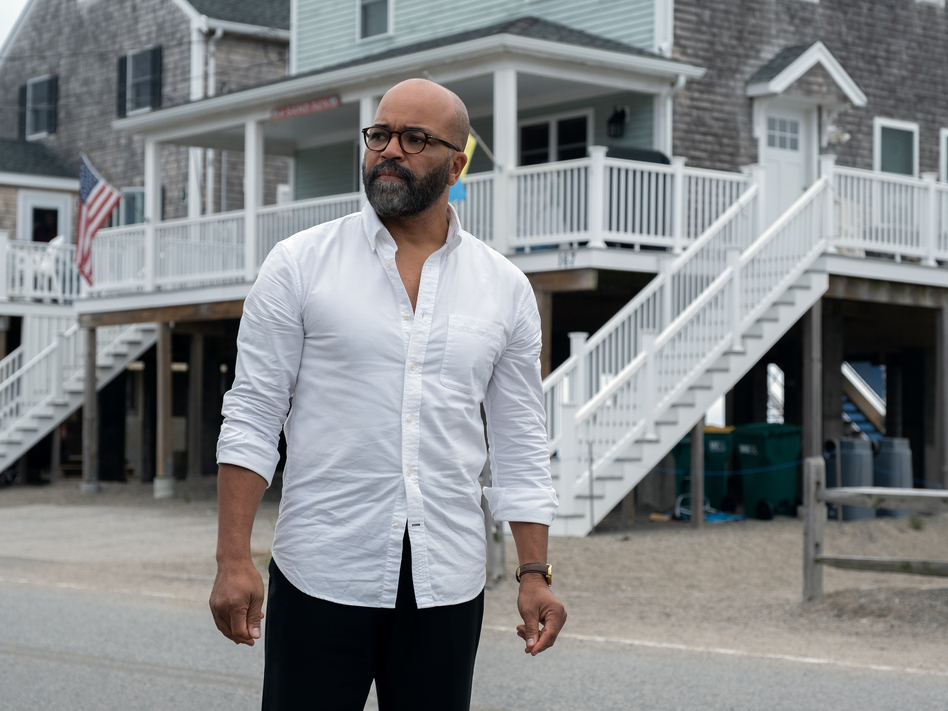

9(MDQ0ODU2MzU2MDE1NTM3MTIwMjFiMDhjNA000))
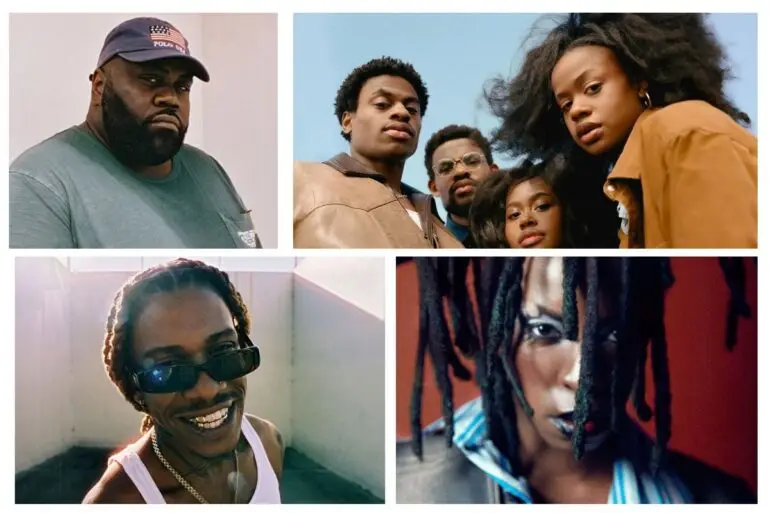
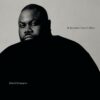

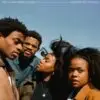
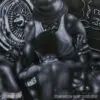


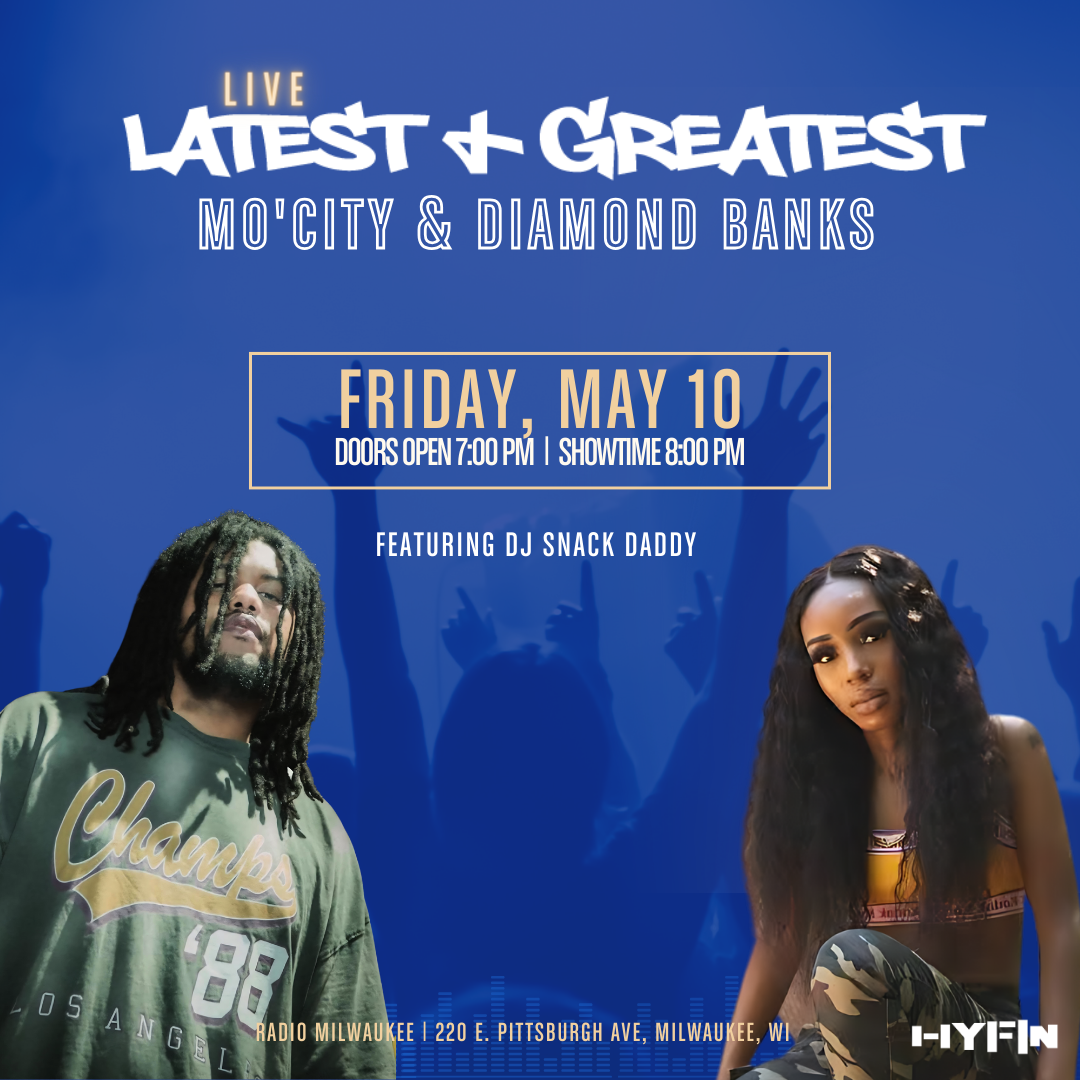
You must be logged in to post a comment.